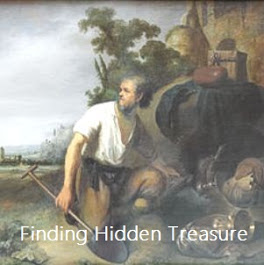
Today is the second anniversary of the School of the Solitary Place blog. By the grace of God, I've been able to post over 70 articles on various topics, usually relating to prayer (there was an exception back in June when I posted about the Detroit Red Wings winning the Stanley Cup earlier that evening).
The picture in the upper left is a personal rendering of an early morning scene, while it is still dark but with the hint of dawn's first light. I can imagine that the Lord Jesus saw something similar when He was praying on that early Sunday morning mentioned in Mark 1:35.
I know that this blog has had a readership throughout 45 states in the United States and hits on servers in over 30 countries. What a privilege. Thanks for reading this blog and for your interest. If you are so inclined, please write and let me know that you've been a reader. The e-mail address is
schoolofthesolitaryplace@yahoo.com
The following is from that first blog entry of two years ago:
The School of the Solitary Place is the place where we learn prayer. It is where we learn to commune with God. We learn from our school-master of prayer, the Lord Jesus Christ Himself.Early in His ministry after conducting a busy night of healing:
"Very early in the morning, while it was still dark, Jesus got up, left the house and went off to a solitary place, where he prayed." (Mark 1:35 NIV)
The Lord Jesus is our teacher in this school. While we as Christians are called to corporate prayer and worship, the practice of individual prayer lays the foundation for a deeper relationship with God and the ability to pray with others in more than a merely formal manner.
The solitary place is a place of solitude to shut out the voices and demands of our everyday world so that we can pray without interruption to the God who made us. It is not necessarily a barren and howling wilderness. The Lord Jesus refers to such a place as a "closet" or an inner room. It might be a nearby park. For the 18th century American theologian Jonathan Edwards, a solitary place was found in walking alone with God in his father's fields, or as young minister in New York City, he later wrote how he very frequently
used to retire into a solitary place, on the banks of Hudson's River, at some distance from the city, for contemplation on divine things and secret converse with God: and had many sweet hours there.
The 20th century minister A.W. Tozer used a corner of the family basement as a place to meet with God in solitude and prayer. A 15th century monastic instructor named Thomas A Kempis wrote how the monk's cell was a wonderful place to meet with God. He said:
"Your cell will become dear to you if you remain in it, but if you do not, it will become wearisome. If in the beginning of your religious life, you live within your cell and keep to it, it will soon become a special friend and a very great comfort. In silence and quiet the devout soul advances in virtue and learns the hidden truths of Scripture. There she finds a flood of tears with which to bathe and cleanse herself nightly, that she may become the more intimate with her Creator the farther she withdraws from all the tumult of the world. For God and His holy angels will draw near to him who withdraws from friends and acquaintances."
(By the way, it should be understood that the meaning of "cell" has changed over the years. That word today carries the meaning of a place of punishment and confinement. However, centuries ago, the word "cell" was derived from the Latin word "Coelum" which means "Heaven") In 1895, Andrew Murray echoed the words of Thomas A Kempis written almost 500 years earlier. In his classic work on prayer entitled With Christ in the School of Prayer, Murray wrote:
"We have learnt to know and accept Jesus as our only teacher in the school of prayer. He has already taught us at Samaria that worship is no longer confined to times and places; that worship, spiritual true worship, is a thing of the spirit and the life; the whole man must in his whole life be worship in spirit and truth. And yet He wants each one to choose for himself the fixed spot where He can daily meet him. That inner chamber, that solitary place, is Jesus's schoolroom. That spot may be anywhere; that spot may change from day to day if we have to change our abode; but that secret place there must be, with the quiet time in which the pupil places himself in the Master's presence, to be by Him prepared to worship the Father. There alone, but there most surely, Jesus comes to us to teach us to pray."
The purpose of this blog is to encourage you in your personal and private times of prayer in Christ. In this School of the Solitary Place, we learn the aspects of personal prayer to enter, by ourselves, into a one-person schoolroom to be tutored by Christ personally in this wonderful privelege.





























